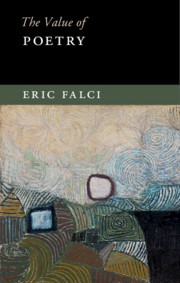2 - Worlds and Selves
Published online by Cambridge University Press: 20 November 2020
Summary
This chapter considers the ways that poems construct forms of subjectivity. While the unproblematized, monologic lyric subject is a problematic figure, poems still have the capacity to construct and stage more viable modes of subjectivity and self-making. And such a reconfigured subject can become much more attentive to its embedding in various networks of social, economic, and ecological relations. In this way, the value of contemporary poetry inheres precisely in its continuing and critical interest in the status of subjectivity and of individual life within world systems that are unthinkable at the level of the human. Without reaching back once again to an outmoded model of the Romantic subject, much contemporary poetry seeks ways to represent the precariousness and vicissitudes of individual experience and to frame those experiences as more than simply “individual,” but rather as modes of responsiveness to social and environmental conditions. The chapter takes up poems by John Ashbery, Rae Armantrout, Roy Fisher, Jorie Graham, Claudia Rankine, and Layli Long Soldier.
- Type
- Chapter
- Information
- The Value of Poetry , pp. 49 - 88Publisher: Cambridge University PressPrint publication year: 2020

